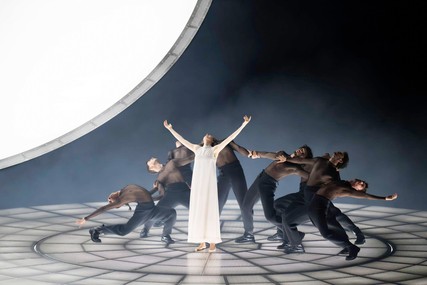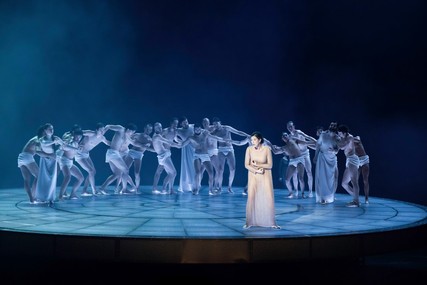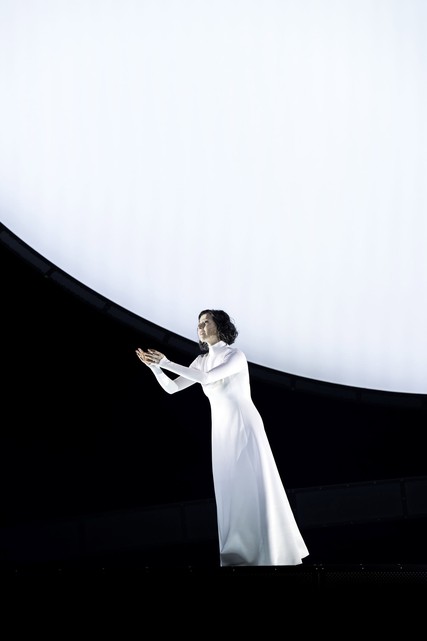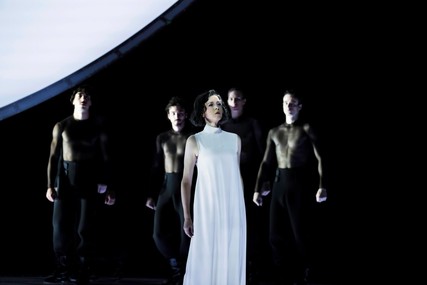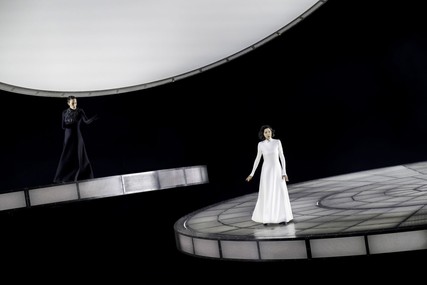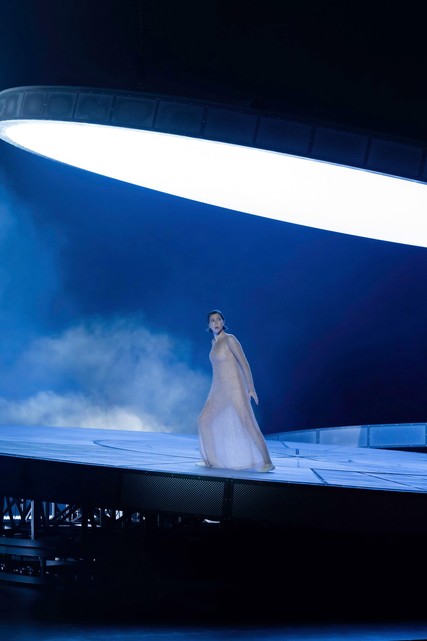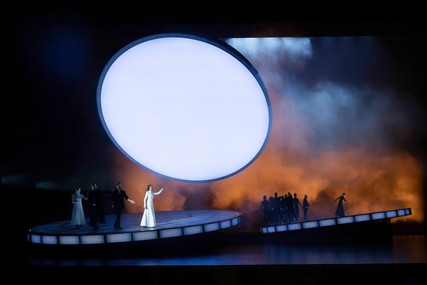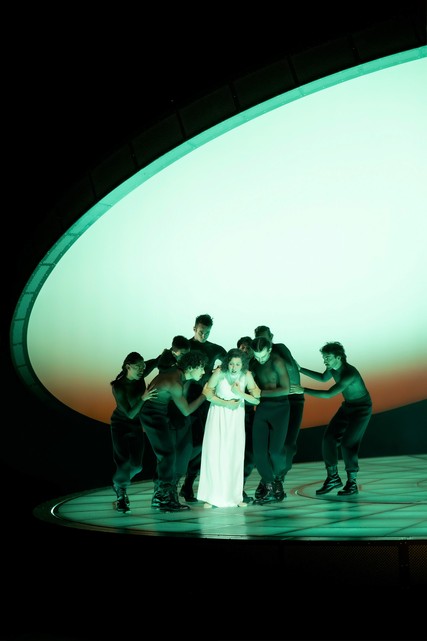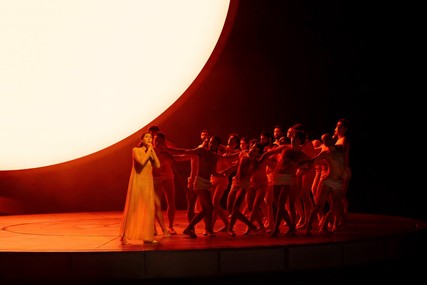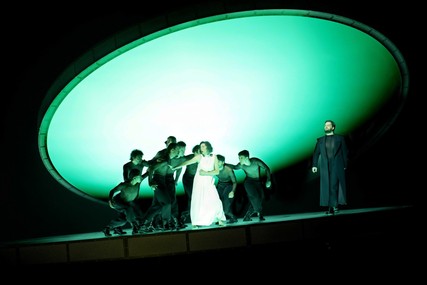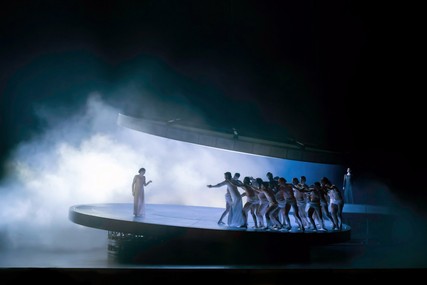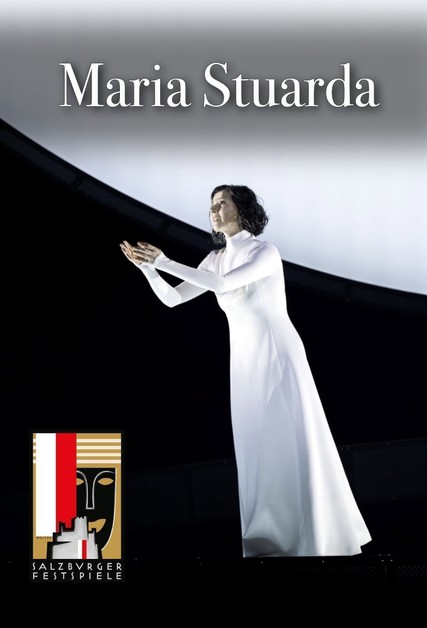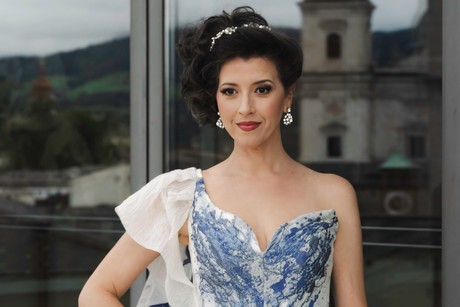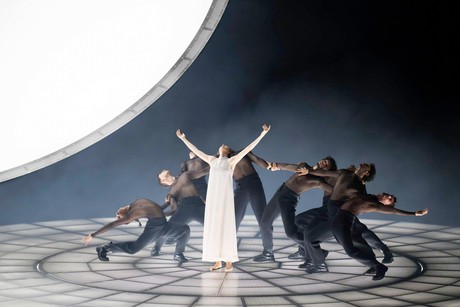Et puis il y a Lisette Oropesa qui oppose à l’araignée noire un profil de tendre oiselle blanche (on voit déjà les subtilités de la mise en scène). Lisette Oropesa remporte un succès océanique et c’est évidemment justifié. La voix s’est élargie, le phrasé est impeccable, la diction comme toujours un modèle de clarté, elle chante avec les couleurs qu’on aimerait entendre en fosse et chez sa partenaire, avec une palette infinie liée aussi à son contrôle vocal, dominant les filati, les passages, mais aussi les graves et particulièrement expressive (elle a chanté Verdi et cela s’entend aussi). Il y a chez Oropesa une manière de chanter qui semble afficher une fragilité et qui est au contraire d’une vraie solidité, avec les accents voulus, avec le style : c’est la seule vraie belcantiste du plateau et qui sait être à la fois la Maria fragile et la Maria déterminée parce que c’est aussi une interprète sensible. La voix n’a pas un volume époustouflant, mais la projection, la tenue de souffle, la ligne montrent une domination technique incroyable. Une technique belcantiste pure qui lui permet – et ce n’est pas un paradoxe – d’aborder aussi bien Rossini que Verdi, Bellini que Meyerbeer, avec en prime Massenet ou Gounod. Prestation immense, qui était attendue et qui est pour nous confirmation de cette carrière bien menée qui reste assez linéaire et prudente.
And then there is Lisette Oropesa, who contrasts the black spider with the profile of a tender white bird (one can already see the subtleties of the staging). Lisette Oropesa achieves an immense success, and it is obviously justified. Her voice has broadened, her phrasing is impeccable, her diction as always a model of clarity, she sings with the colors that one would like to hear in the orchestra pit and with her partner, with an infinite palette linked to her vocal control, mastering the filati, the passages, but also the low notes, and particularly expressive (she has sung Verdi and that is also clear). Oropesa has a way of singing that seems to display fragility but is in fact of true solidity, with the intended accents, with style: she is the only true bel canto singer on stage and knows how to be both the fragile Maria and the determined Maria because she is also a sensitive interpreter. Her voice does not have a stunning volume, but the projection, breath control, and line show an incredible technical mastery. A pure bel canto technique that allows her - and this is not a paradox - to approach Rossini as well as Verdi, Bellini as well as Meyerbeer, with the added bonus of Massenet or Gounod. A huge performance, which was anticipated and which confirms for us this well-crafted career that remains fairly linear and cautious.
— Guy Cherqui • Wanderer



